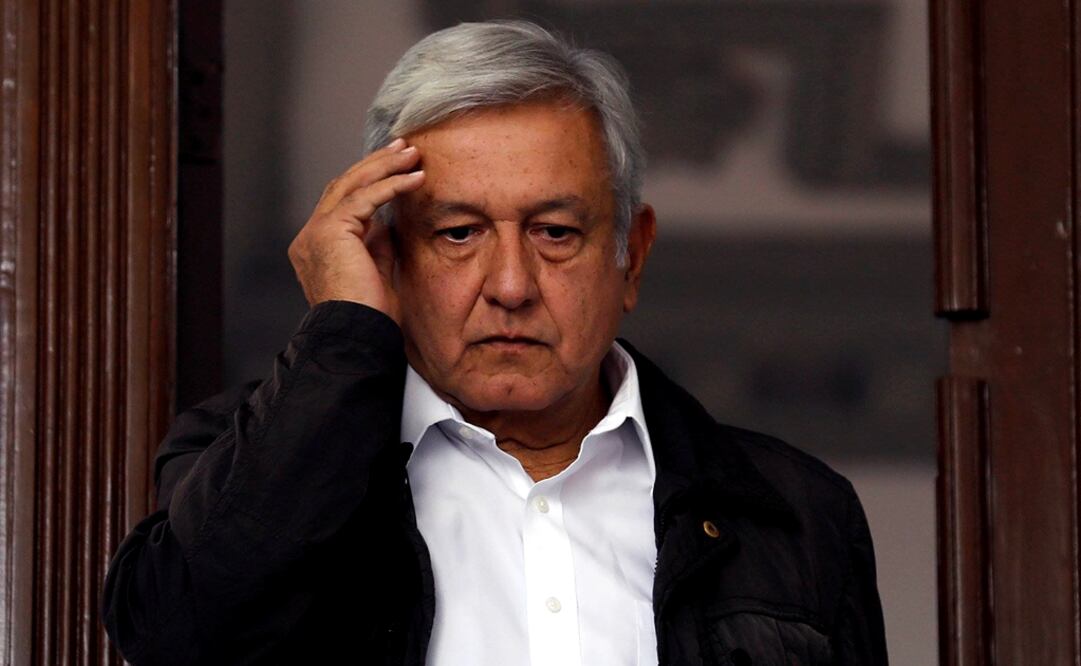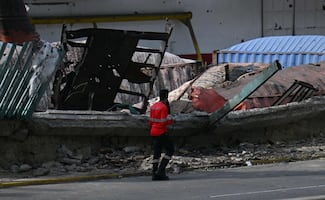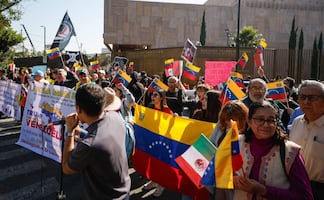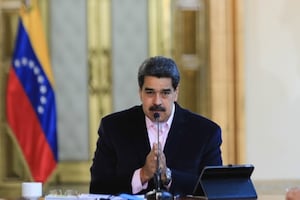Más Información

Captura de Maduro: Así es el USS Iwo Jima (LHD-7), el buque de asalto anfibio que traslada al líder venezolano a EU
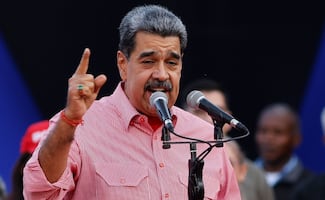
EU captura a Nicolás Maduro: Así fue “Absolute Resolve”, la operación para detener al líder venezolano

Países de AL han buscado a México tras ataque de EU a Venezuela, dice Sheinbaum; hace un llamado a la unidad
President-elect Andrés Manuel López Obrador
’s project to decentralize 12 ministries and 15 entities from Mexico’s federal government which are currently located in Mexico City , will not only affect the workers involved, but also a large amount of middle and small establishments that depend on the government workers and their families’ consumption to survive.
One out of four bureaucrats ( 26% ) affiliated to the Institute for Security and Social Services for State Workers (ISSSTE) is registered in the capital, which represents 740.6 thousand workers and little more than 2 million family members .
The net income of these workers, deducing operating taxes, represents 5% of the entity’s GDP , and 39% of family expenses in Mexico City.
“This decentralization will have a significant impact on Mexico City in terms of both formal and informal economy. Surrounding these government offices, there is an entire network of informal operators offering food and other products for sale, relying on the government employees’ demand,” stated Aníbal Gutiérrez, professor and investigator at UNAM’s Faculty of Economics .
In the capital of Mexico, there are around 270,000 small businesses and restaurants that formally employ over 754,000 people , but there is also a very large amount of shops, inns, taco places, and other informal businesses that directly employ 760,000 people , involving a total of over 1 million and a half employees .
In addition to the impact on overall consumption, the decentralization will also represent an impact on tax collection in Mexico City, as well as in the State of Mexico , not only in terms of payroll taxes, but also through the economical activity generated by restaurants, cabs, laundries, and other services, as well as an increase in collections for recipient institutions at federal offices, according to José Besil, president of the Mexican Institute of Public Accountants .
Raymundo Tenorio, director of the Economy and Finance degree at the Monterrey Institute of Technology
, stated that, although some government departments will be taken out of the city, other bodies will be created in the urban area, which means that the economical downturn will not be of serious proportions. The country’s capital will always have an opportunity for growth, attracting consumption and private investment.
Economic analysts agree that the decentralization project will be complex and it will come at a high cost for government employees, their families, public finance, and local governments, as well as the population of Mexico City, which is why the operation will require a more detailed analysis on the benefits justifying the efforts and expenses of each government body.
“If we plan to decentralize, we should be clear about what we will gain in regard to the federal government as well as the state governments, but specially how it will affect the population. It will surely be complicated, and there is yet to be a detailed diagnosis that may justify the decision,” claimed Aníbal Gutiérrez.
It is estimated that the decentralization investment will cost 125,000 million pesos during López Obrador’s six-year term , according to the 2018-2024 Nation Project made by the President-elect’s team. The number is 18% higher than the budget expenditure for the Ministry of Social Development , similar to that of the Ministry of Health’s budget , and half of the budget to be spent on the Ministry of Public Education in 2018 .
However, it is estimated that during the first year alone, infrastructure projects for decentralization will cost 20,925 million pesos to the public sector, though during the next years, the project will also count with the participation of the private sector.
Additionally, expenses of around 22,805 million are estimated for several studies on the cities’ physical capacities, social assessments, urban development plans, the creation of coordinating entities, studies from the real estate market, and other complementary projects.
The purpose of the project will not only be to decentralize ministries and federal dependencies, but also to create development zones in other parts of the country. For example, in Ciudad del Carmen , the federal government will organize a business hub for the energy industry in addition to sending PEMEX’s headquarters to the area.
According to Raúl Feliz, a professor at the Center for Economic Research and Teaching (CIDE) , the information on the decentralization project is still insufficient to assess the feasibility of these measures.
dm
Noticias según tus intereses
[Publicidad]
[Publicidad]




